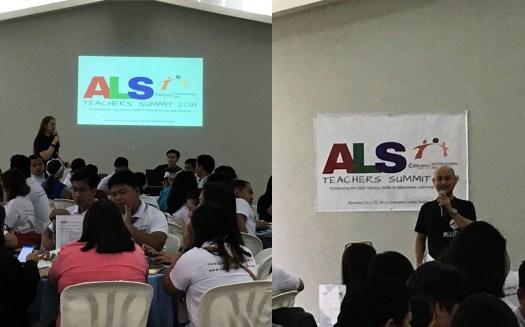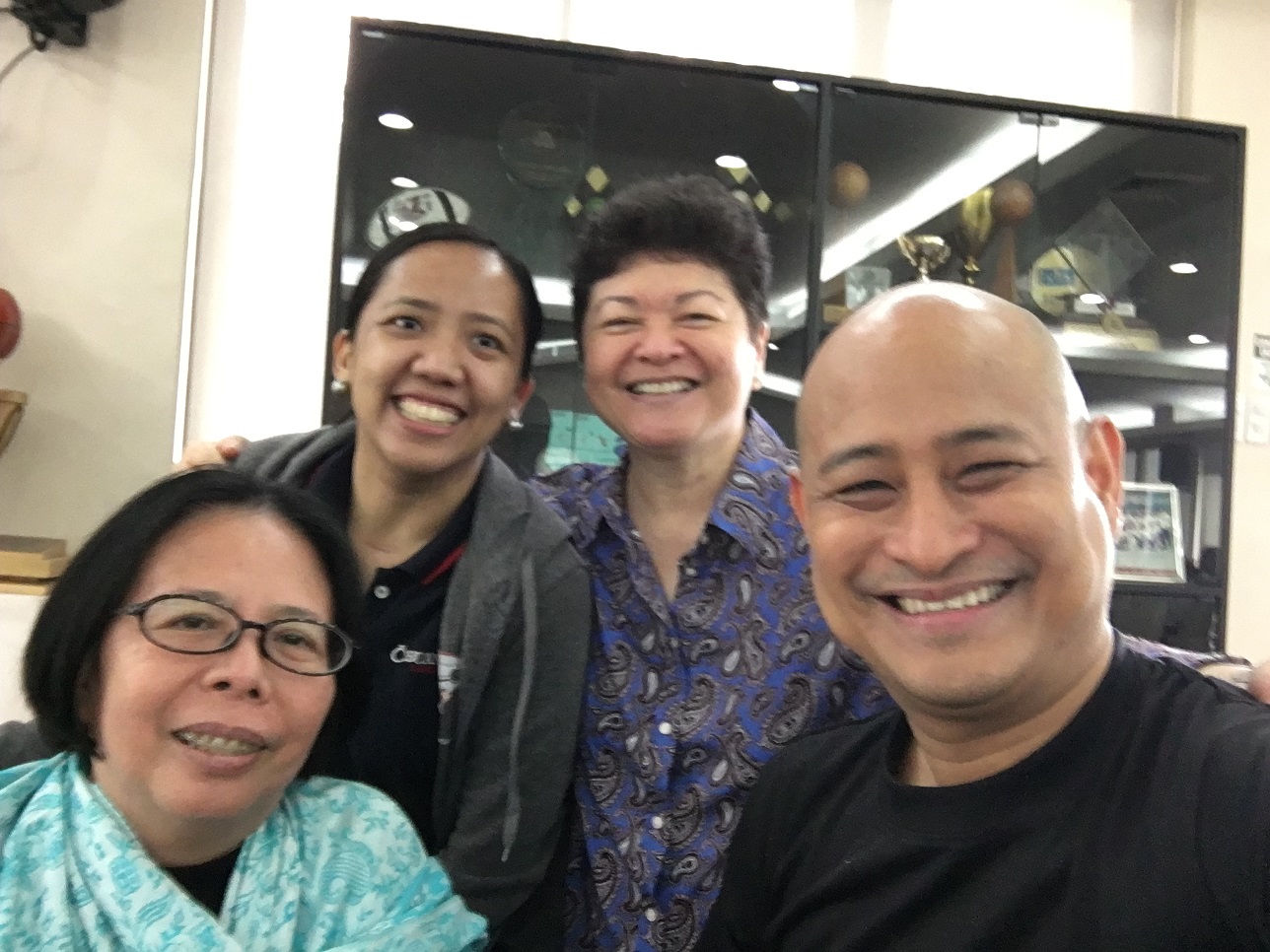Last November 22, 2018, I had the wonderful opportunity of being one of the resource persons for the first ever ALS Teachers’ Summit 2018 sponsored by the Cebuana Lhullier Foundation, Inc. (CFLI) in partnership with the Department of Education (DepEd). The partnership was established by CFLI in 2013 with the DepEd. CFLI adopts local government units and public schools to make ALS available in their area.
“ALS” stands for Alternative Learning System (ALS) and is a parallel education system that is an option for those who do not or cannot have access to the Philippine formal education system. ALS provides Academic, Livelihood, Spiritual and Social Education to former out-of-school youth and adults in the elementary and secondary levels. Mobile ALS Teachers provide the alternative education and, at the secondary level, this is aimed at preparing youth and adults to take and pass the Junior High School and Senior High School equivalency tests, respectively. Equipped with the knowledge and skills at said equivalency levels, test passers are helped to become more job-ready.

Back to the summit, the overall intention of the summit was to provide ALS Teachers more opportunities for personal and professional development. One day during the 2-day summit was devoted to helping them learn more about Coaching and Mentoring skills for ALS teachers and how they can use these to help youth and adults develop their full potential. The role of teachers as coaches and mentors was explored and a coaching and mentoring approaches and skills were discussed.
We started with differentiating several helping modalities as these are often confused with one another. The most succinct points that sums up the difference that I’ve found so far are the following. In a nutshell…
- Coaching is about generative change and enabling self actualization
- Mentoring is about guiding from experience
- Consulting is about giving advice and expertise
- Training is about teaching and drilling in new skills
- Counseling and therapy is about remedial change, i.e., solving problems, healing hurts, resolving traumas and building up ego-strength so the person gets up to average and becomes “okay“
(L. Michael Hall, Ph.D.)
The GROW/TGROW Performance Coaching Model (John Whitmore) and the Narrative Coaching Model (Dr. David Drake) were introduced and discussed. GROW/TGROW stands for Goals, Reality, Options, Way Forward, and T stands for Topic. GROW/TGROW is an approach for guiding a coaching conversation and may be used to guide a mentoring conversation as well. Narrative Coaching “is a mindful, experiential, and holistic approach that helps people shift their stories about themselves, others, and life itself to create new possibilities and new results.“
“We live our lives according to the stories we tell ourselves and the stories that others tell about us.” (John M. Winslade and Gerald D. Monk, 2007.)
One insight during the interactions with ALS teachers is that more felt that the Narrative Coaching approach can support them more in helping out-of-school youth and adults, who typically come from disadvantaged backgrounds, to re-author the stories of their lives to develop and strengthen their positive self-esteem and self-confidence. The stories we tell about ourselves and the stories that others tell about us are very powerful indeed, and often the impact they have on our thinking, feelings, choices and actions, remain blind spots for many who are clueless about their influence.
For example, an illiterate 15 year old youth may not have the motivation nor confidence to learn how to read and how to do simple math, believing that these are beyond his abilities. Such a limiting self-belief may continue to be perpetuated with his self talk and stories about himself that learning is beyond him and that he does not have what it takes to learn. Stories about the times he tried but just did not learn are those that are most salient in his mind. Others in his life may have the same beliefs about him expressed as stories about his lack of ability, motivation, and so on. Such stories also being most salient in their minds. The vicious cycle continues and he has given up on himself.
With the help of an ALS teacher using a Narrative approach, he can explore areas where he may have higher self confidence, demonstrated the ability to learn, how these came to be, and how these may be resources for him to tap in learning how to read and do simple math. Exploring events and interactions in his life which showed that he does have abilities for learning and many other skills, helps him create new stories about himself as a person with abilities that he may not have realized until this time. The process goes on to “thicken the plot” of his new story that he is able and helps him to make new choices, including applying himself to his studies. Enlisting the support of others in his family and environment are critical as well if creating new stories and making them stick.
The focus of coaching and mentoring is always supporting the “client” (a.k.a., “person coached” or “coachee” and/or “mentee” or “protege”) in achieving the outcomes that s/he has for herself/ himself. Helping clients in discovering, exploring and realizing their fuller potential is what coaching and mentoring is about. Coaching is about helping someone to learn instead of teaching them. Mentoring, on the other hand, may include advising and teaching someone by the mentor sharing their experiences.


To learn more about Cebuana Lhuillier Foundation, Inc. and its advocacy on education and the Alternative Learning System (ALS), visit the Cebuana Lhuillier Alternative Learning System website at http://cebuanalhuillierals.com/.
To learn more about the Alternative Learning System (ALS) in the Department of Education (DepEd), visit DepEd web page on ALS at http://www.deped.gov.ph/k-to-12/inclusive-education/alternative-learning-system/.